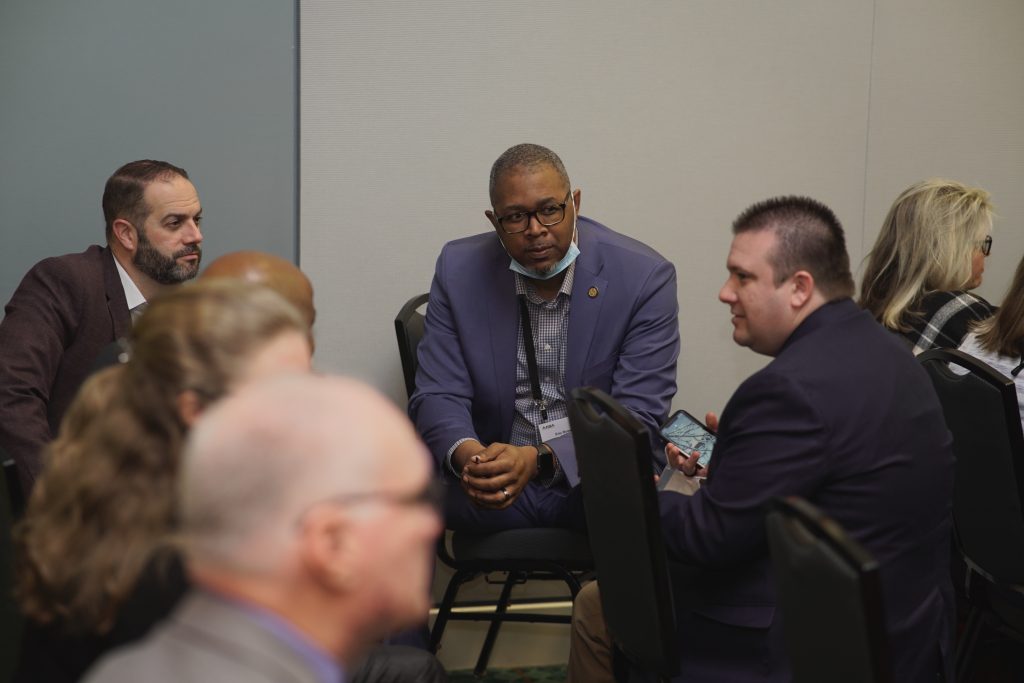Two superintendents and two other administrators serving on a conference panel Friday discussed what courageous leadership means and why equity is necessary to improve schools and central offices.
Tammy Campbell, superintendent of Federal Way Public Schools, Federal Way, Wash., was the main panelist at “Courageous Leadership: A Systems Approach to Equity” at the AASA National Conference on Education.
In the push for equity in schools nationwide, Campbell believes each person working in a school district need to be results oriented.
“You need to be listening to perception data from your students speaking about [if] they feel like they belong [and if] they feel like their schools [are a] home game for them,” said Campbell.
Students should be co-authors of their education, she said. Their role is not to watch superintendents and educators create change. They should be creating change with them.
Every school board, she contended, ought to ensure its strategic plan carries student-centered goals.
Fellow panelist Marla Newton, chief academic officer, Federal Way Public Schools, said demonstrating that students’ voices matter is important. Principals should be listeners, then taking action on what their students need to be successful in their academics.
Panelist Susan Enfield, superintendent of Highline Public Schools, Burien, Wash., said talking about equity is completely different than operationalizing equity. Creating equitable school systems is the main way to ensure every child has an equal share in the process of education.
“And that is why we all and you all get up every day,” said Enfield.
Enfield drew on her experience as a teacher during her remarks. When she taught English and journalism, she said she made a promise to all her students that she will know their name by the end of the first week. Later on, she concluded that she should also figure out every kid by need and strength, too.
“What if we treated every child as gifted,” said Enfield.
She said if administrators only focus on name and need, they are not doing right by them. Educators must work to amplify students’ strengths, so they graduate prepared for the future they choose.
Campbell said sometimes she wants to move away from the word equity because she knows the word makes people think they are talking about something that is extra.
“What I tell the teams and places that I coach, leadership is equity, equity is leadership,” said Campbell.
Lastly, panelist Tremain Holloway, principal in Highline Public Schools, said it’s great to have all the talk about equity, but what are people doing at the school level that is motivating the children to go to school. That’s what really matters.
(Selah Oden is a reporting intern with Conference Daily Online and a junior at Martin Luther King Jr. Magnet High School in Nashville, Tenn.)

